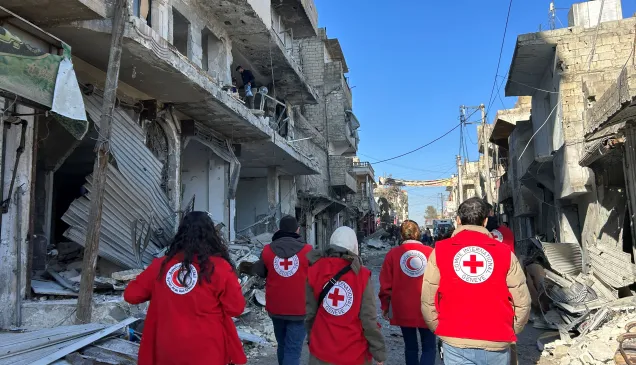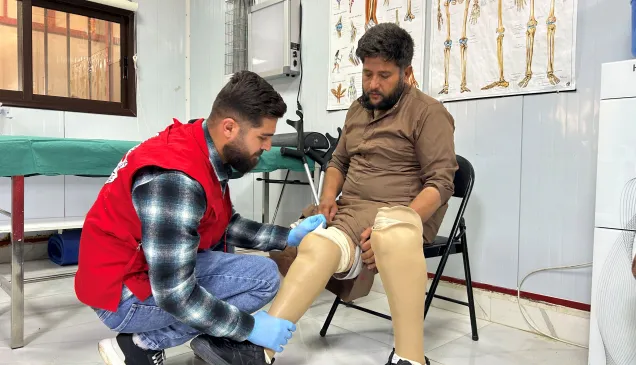Statement by ICRC President Peter Maurer on Syria trip

This is my 5th visit to Syria and each time I come, I see more suffering. Nearly half of the population has been displaced and all are exhausted by conflict. The humanitarian needs are enormous, and in parts of the country affected by ongoing fighting these needs are in fact rising sharply.
This is especially true in hard-to-reach places. The irregularity of help is exposing these populations to risks including poor nutrition, unclean water, or inadequate medical care.
Above all, what is clear to me is that even if the conflict ends tomorrow, the need for humanitarian aid will be daunting.
During my visit, I met with Syrian officials and we spoke about these humanitarian needs. I stressed my desire to expand further ICRC’s regular access to civilians and detainees and I emphasized the critical importance for all sides in the conflict to better facilitate our work on the ground, with swifter and unimpeded access.
On the ground, I was impressed by the dedication of thousands of the volunteers of the Syrian Arab Red Crescent (SARC) who work with us to help people in need. Together with the SARC, we are ready to boost our neutral humanitarian operations, we are ready to increase the delivery of vital aid. But access is absolutely critical. We cannot help people we cannot reach.
I am encouraged by the gradual progress we’ve made on delivering aid across the lines of conflict. In 2016 we carried out eight times as many crossline operations as in 2015, and since the beginning of this year have delivered aid in 19 such operations. We can do this because of our honest and direct dialogue with all parties to the conflict.
Yet it is very clear that short-term relief alone is not enough. As important is the long-term process of building resilience that we can support alongside. We will be scaling up our livelihood programmes to respond to the expectations of those who now need more sustainable solutions, like cash grants or small business projects, to rebuild their lives.
I have been fortunate in this trip to hear directly from people trying to survive under extremely difficult circumstances. Driving to Zabadani, the destruction is clear and devastating. In Ein Al-Fijeh I met school teachers – themselves displaced by fighting – concerned at what the lost years of education mean for the future of so many Syrian children. I was moved when 13-year old Manar, one of the young Syrian girls I met at SARC’s psychosocial centre in Al Tal, offered me a handmade gift.
The Syrian crisis is first and foremost a protection crisis and we must see the rules of war respected. We all need to keep helping Manar and others to deal with psychological scars of this conflict. We will continue to engage with Syrian authorities to address the needs of families whose relatives have gone missing, to help improve the treatment of detainees and their conditions, and to reach civilians trapped in the fighting.
It is also obvious that a political solution is essential to end this suffering. However, this solution cannot distract from the needs of people like those I met this week. Aid must be separate from the political process and this process must not blind the world to the suffering of the Syrian people.



